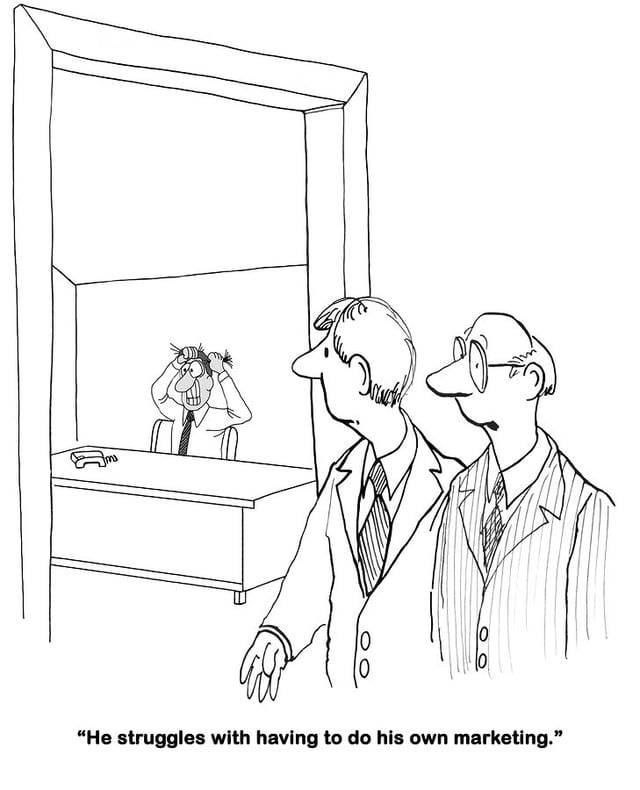Sales, as a profession, can be very rewarding. But, it can also be stressful and it's not the right career choice for everyone. With that in mind, using DISC is an essential way to tell if sales is the right career path for you.
Anyone can succeed in a sales career with proper training. However, that doesn't mean all sales careers are suited for everyone. Some may be better suited or thrive more in specific sales roles. Knowing this before hiring a candidate can reduce problems in any company where sales professionals are needed. Using DISC assessments along with sales training is an effective strategy when finding out if a potential hire is appropriate for a sales career. Because there are different DISC styles, some people may perform better than others in certain sales roles. Others may simply need a different kind of job or atmosphere to excel.
What Does a Good Salesperson Need?

Top sales professionals are able to sell almost anything with little worry in conveying their sales pitch. They are confidently self-aware. Often, these top salespeople not only understand their own sales styles, but they can also adjust to their clients' DISC styles. Hence, they will close the deal. They understand what they need to do in order to be successful. Selling can be learned by anyone with proper skills training and experience. However, there are those who have selling qualities that come natural to them, and motivate them.
A behavioral assessment can help identity an individual who has the natural ability to succeed in sales. That's where DISC comes in. Using DISC can give sales managers and salespeople important information about employees, themselves, prospects, and their careers. A company that values placing employees in a role that best suits them are worth finding and working for. Many of these companies use DISC assessments in order to find where employees' strengths lie, instead of by trial and error.
How Can Using DISC with Sales Training Benefit People?
As a part of sales training, a DISC assessment can make a big difference for employees and entire organizations. Almost every person who is hired for a sales role goes through some sort of sales training. This is true for not only inexperienced sellers, but experienced sellers as well! Every company is different in their approach to sales. Therefore, training tailored to the companies values is required for all new hires, no matter the individuals sales experience. There are rules and regulations to follow. There are company policies. The commission rates and other factors will be different, too. Sales training will cover all of those aspects.
With so much to consider, companies need to be sure their salespeople get the right kind of training. Do people need to be trained in different ways? Actually, yes. That is a part of understanding DISC profiles. Not everyone is initially good at selling, and no two salespeople are exactly alike. People hear and absorb information differently based on their DISC styles. That means they need to be trained in a way that might not be the same as other salespeople. The C-style salesperson is likely to respond better to written sales manuals, but the D-style salesperson wants to know just the basics and then have the freedom to sell.
Whether a company is willing to do that will depend on the company. For a salesperson who learns differently, a DISC profile could be extremely valuable.
Do Different DISC Styles Really Matter?

The differences in DISC styles matter. When it comes to selling, the differences can be significant. It is not just about how people learn, but also how they interact with others. How they learn matters for sales training. Their interaction matters for working with customers. Of course, they must also work well with other salespeople and their supervisors. If two people have totally different DISC profiles, they may not mesh well with one another. That can be a problem for those who try to work closely with others. Salespeople often work on a more solitary basis, but DISC can play a crucial role in lead generation, maintaining clients, and closing the deal.
Someone with a more reserved DISC style may not excel in sales like an individual with a more outgoing DISC style would. However, what a person is selling can also make a big difference. For example, those with more people-oriented DISC styles would be more comfortable selling cars or vacations, whereas a person with a detail-oriented DISC style may be comfortable selling high tech, complicated machinery. Different skill sets are needed. Different styles and tones are also important. When a company knows what kind of DISC profile a person has, it can be much easier to see if that person is a good fit. If a salesperson isn't good with a particular product or service, they may be better suited to a different one. That is worth considering.
Selling Doesn't Motivate Everyone
For many people, selling is a stressful job. Some people thrive in a sales role. The key is to find a person who loves it and is good at it. It's also vital to find the right product or service for the person to sell. For employers familiar with DISC styles, it is easy to see that people are different. How a person handles pressure and situations in the workplace matters. Personality matters. People see more success, but they can also see failure when those two factors are placed together. The difference is between success and failure - are they in the right job at the right company, or not? With DISC, that can be determined.
What Will DISC Assessments Tell Employers?
The DISC assessment tool will tell employers a lot of things about a current or potential employee. From how they work with others to how they see the world, there is information to be discovered. That can help an employer choose a new employee. It can also help when it comes to promotions, raises, and other changes. Sometimes, an employee may just need a new role. That can take someone who's struggling and make them much more successful, which benefits the employee and the company. No matter what an employee needs, a DISC profile can make things easier when it comes to understanding people.
DISC shows and individuals natural behaviors. It also shows how someone works under pressure, and how they react to things. The more an employer knows about employees, the easier things are when it comes to communication. Employees need to be able to work together. Even in sales, which can be competitive, some collaboration is often needed. When DISC helps with communication styles, more information can be acquired by salespeople and companies. That gives companies a better chance at success and expansion.
Why Employers Need DISC
Employers who want to utilize their most valuable resource, their workers, should consider DISC assessments. They not only address what the employee needs to do to be successful, but also what the company needs to give the employee to keep the relationship strong. A strong relationship between a company their employees will go a long way for both of them. If the employer chooses to share the DISC information with the employee, that can also help that employee learn more about themselves. This can lead to personal growth and development, which benefits employees throughout their entire career.
Is DISC Necessary for a Salesperson's Success?
While DISC may not be a requirement, it will make a difference. Employers see a more complete picture of their employees. They can take proactive steps to help an employee thrive and succeed. Overall, DISC is a good way for organizations to discover things about their employees and how they work best. Communication, personality, needs, goals, and plans all matter. They are important to employees, and they make a difference. For those who are not sure about a particular job, DISC can also be the catalyst for much-needed change that can benefit everyone involved, including the employer.
 Don't underestimate the power of finding out more about how your employees prefer to do things. The more an employer knows about employees, the better. Open minded employers can take the DISC profiles of their employees and use them to make changes that improve the organization. People work best in roles they are really suited for and comfortable in. With DISC assessments, that is much easier to determine. Employers can assign people to the jobs that motivate them and thrive in. Everyone is happier and more productive that way. More gets accomplished which is good for the company and its customers. Employers should always refer back to DISC profiles when making decisions since much can be learned from the ongoing practice of making sure people and jobs are a good fit.
Don't underestimate the power of finding out more about how your employees prefer to do things. The more an employer knows about employees, the better. Open minded employers can take the DISC profiles of their employees and use them to make changes that improve the organization. People work best in roles they are really suited for and comfortable in. With DISC assessments, that is much easier to determine. Employers can assign people to the jobs that motivate them and thrive in. Everyone is happier and more productive that way. More gets accomplished which is good for the company and its customers. Employers should always refer back to DISC profiles when making decisions since much can be learned from the ongoing practice of making sure people and jobs are a good fit.
